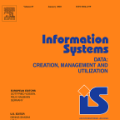Post-conflict, low-resource settings are menaced with challenges related to low-resources, economic and social instability. The objective of the study is to understand the socio-technical determinants of resilience of resilience of routine information systems a backdrop of an implementation of a mobile-based nutrition information system in a post-conflict district in Sri Lanka. The longitudinal events in the study spans across several years into the period of COVID-19 pandemic and tries to understand the process of developing resilience of in a vulnerable district. The qualitative study deploys interviews, observations and document analysis for collection of empirical data. The case study reveals the long-standing capacity building, leadership and local governance, multisector collaboration, platform resilience and empowering of field health staff contribute in building resilience in everyday context. The empirical insights include the mechanisms in building resilience in routine system in low resource settings while promoting data quality and data use at field level.
翻译:研究的目的是了解在斯里兰卡冲突后地区实施流动营养信息系统的背景,了解日常信息系统复原力的社会-技术决定因素;研究中的纵向事件跨越了自COVID-19大流行以来的几年,并试图了解在脆弱地区发展复原力的进程;定性研究为收集实证数据进行了访谈、观察和文件分析;案例研究揭示了长期能力建设、领导和地方治理、多部门协作、平台复原力和增强外地保健工作人员权能对日常建设复原力的贡献;经验深入包括建立低资源环境中常规系统的复原力的机制,同时促进数据质量和实地数据使用。



